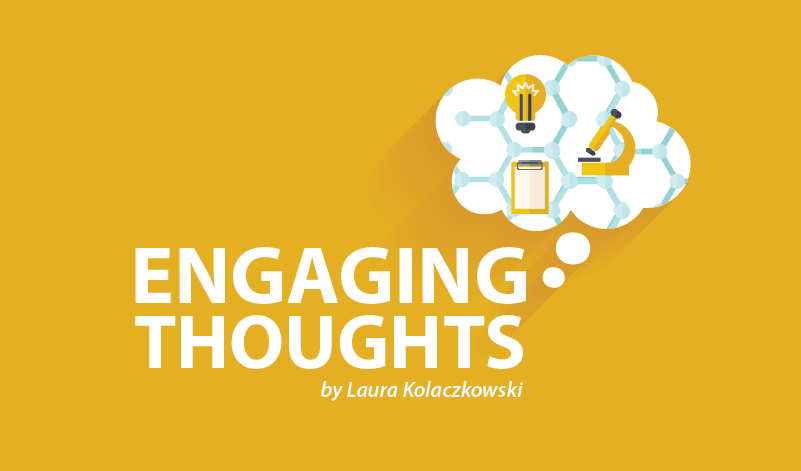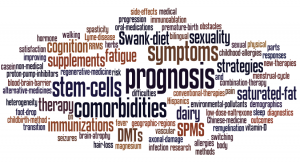Got Questions? iConquerMS Seeks Answers
Written by |


If you’ve followed my writing, you already know I am committed to advancing patient-centered research and care. I am the lead patient representative and co-principal investigator for iConquerMS.
One of the main goals of iConquerMS is to elevate the voice of people with MS into research. How do we accomplish that? It is a multi-step process. First, people with an interest in multiple sclerosis and helping out — this could be a person with MS or someone who has a connection in another way — enroll at our website. When they sign up, they give some basic demographic information.
The Experts: People with MS
 After completing the sign-up, people at any time may enter their suggestions for research topics, ideas that come to all of us at some time or another when we think, “Hmmmm, I wonder if …” People living with MS are the best experts to ask what would be useful knowledge and make a difference in our lives.
After completing the sign-up, people at any time may enter their suggestions for research topics, ideas that come to all of us at some time or another when we think, “Hmmmm, I wonder if …” People living with MS are the best experts to ask what would be useful knowledge and make a difference in our lives.
When we get research ideas entered at iConquerMS, our research committee reviews the topics and looks at how they might fit into either existing research or new work we can initiate. There are some very distinct topic categories that reoccur in these submissions, such as complementary and alternative medicine (CAM), physical therapy, lifestyle, and of course, disease-modifying therapy treatments.
Word clouds are computer programs that sort through documents and create a collage of words based on how often they occur in a document; the more frequently a word occurs, the larger it becomes in this image. When we put the iConquerMS research ideas in a word cloud generator we come up with an image like this one, representing the most used words suggested for MS research.
MS research topic examples
We now have 300+ research ideas/questions submitted by some of the 4,000+ members of iConquerMS. The topics that have not been researched in other places are being looked at in depth by the iConquerMS research committee, and they will be actively seeking researchers who might be interested in helping answer our questions. Following are just four examples of research questions submitted by our members:
“I have noticed on numerous occasions that eating and drinking certain things make me feel better or worse. Example…morning orange juice and banana…better. Salty chips, soy sauce…worse. I plan my diet accordingly. Is there a study or research done on the correlation between potassium and sodium with MS? I have a chemistry/medical background and understand the cellular sodium/potassium pump. I take ampyra and have been to workshops on how it works to keep potassium in cells. Is there more information?”
“Research regarding the sexual dysfunction of women with MS. I currently have absolutely no desire to be with my husband whom I love more than anything in this world. This is so frustrating for both of us.”
“I’m over 60, started Copaxone in 1999 and have never deviated until a few weeks ago when I quit altogether with my neurologist’s support. I’ve been relapse free since 1992 and have read whatever I find about how relapses aren’t common in patients over 60 but I wish I knew more about what may lie ahead. Is progression inevitable, DMT or not? Do we veterans need a new class of drugs? Thank you.”
“We all know that exercise and physical therapy is important to MS patients. But what kinds of exercise work best? What types of physical therapy work for various problems? Dropped foot? Stair climbing? Hand and finger exercises for those in wheelchairs? How can we be more specific with these issues – all the research is general and so far ‘an insight into the obvious.’”
If you are a researcher and would like to work with an engaged cohort of people affected by MS on their questions or your own, you can find the link on our home page for more information. We have many more high-quality research questions such as these that, when answered, could make a difference for many of us living with MS.
If you have MS or want answers to your own questions, be sure to join us at iConquerMS and help us analyze, prioritize, and develop these topics into research studies in collaboration with the research community.
If you are interested in learning more about iConquerMS, you can read my column from about a year ago, REAL MS Research Needs You, or fellow MS News Today columnist Ed Tobias‘ thoughts on this initiative.
***
Note: Multiple Sclerosis News Today is strictly a news and information website about the disease. It does not provide medical advice, diagnosis, or treatment. This content is not intended to be a substitute for professional medical advice, diagnosis, or treatment. Always seek the advice of your physician or other qualified health provider with any questions you may have regarding a medical condition. Never disregard professional medical advice or delay in seeking it because of something you have read on this website. The opinions expressed in this column are not those of Multiple Sclerosis News Today, or its parent company, Bionews Services, and are intended to spark discussion about issues pertaining to multiple sclerosis.



Leave a comment
Fill in the required fields to post. Your email address will not be published.